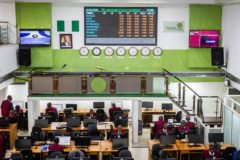South Africa has officially passed its digital nomad visa regulations into law. This makes way for the country to start implementing the issuance of digital nomad visas, a topic which has attracted polarised opinions among locals.
When the draft regulations were published in February, the government invited the public to share feedback and comments that would shape the eventual outcome of the visa. However, the draft regulations and the official ones are the same, meaning that none of the public opinion was taken into consideration.
Although some South Africans favour the digital nomad visa on the premise that it would make the country’s tech ecosystem attractive to foreign talent, others believe an influx would lead to a rise in the cost of living, an increase in inequality, and tax leakage concerns. Others also pointed to several regulations which could impede the effectiveness of the visa.
According to Andreas Krensel, founder of immigration firm IBN Immigration Solutions, the lack of consideration for public opinion on the bill is problematic. “Although the confirmation of [the] digital nomad visa is great news, the same questions asked almost two months ago [when regulations were announced in February] remain unanswered,” said Krensel. Among these questions is whether the minimum salary requirement of R1,000,000 (~$53,000) is gross or net and whether freelancers would be eligible for the visa.
Additionally, South Africa’s current legislature has numerous laws that have to be amended if the digital nomad bill is to become law. For instance, the digital nomad bill proposes an income tax exemption for foreign employees working in South Africa for less than six months, and the income tax act would have to be amended to provide for the exemption to be legal.
The proposed tax administration bill introduced by South Africa’s Revenue Service in 2023 is another potential obstacle. Under the proposed amendments, employers of South Africa-based remote workers must deduct pay-as-you-earn (PAYE) tax. Foreign companies would need to apply for and receive a SARS income tax number and register a branch company within South Africa.
Another legislation that might put off digital nomads is a proposed amendment to the country’s Copyright Bill. For example, universities and other institutions will have the right to reproduce software products without having to pay producers of said products.
“What the bill proposes [is] to water down copyright owners’ protection, and that [is] deeply concerning,” stated Sadullar Kajiker, professor of intellectual property at the University of Stellenbosch. This could prove to be a disincentive for nomads building proprietary software while in the country.
With the visa law now official, it will be interesting to see how the government traverses through the unaddressed challenges as applications start flooding in.





















